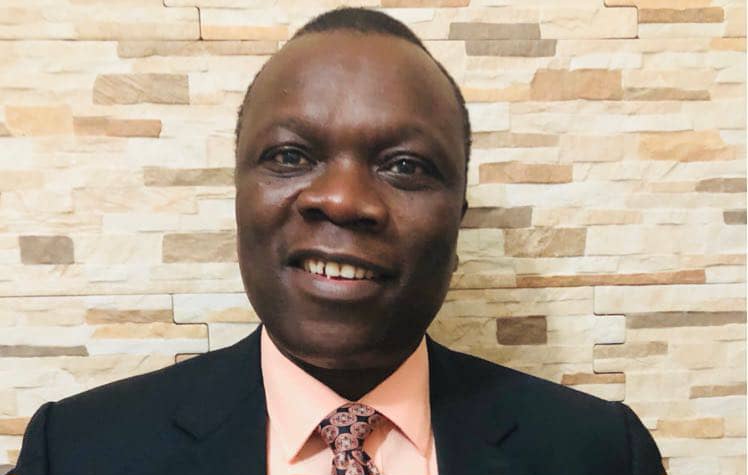 Dr. Ope Banwo’s upcoming novel, “The Kingmaker of Muguland”, has ignited discussions in both literary and political circles in Nigeria. Amidst mixed reactions, Banwo finds himself at the center of speculation regarding parallels between his work and Nigeria’s President, Bola Tinubu.
Dr. Ope Banwo’s upcoming novel, “The Kingmaker of Muguland”, has ignited discussions in both literary and political circles in Nigeria. Amidst mixed reactions, Banwo finds himself at the center of speculation regarding parallels between his work and Nigeria’s President, Bola Tinubu.
Despite striking similarities, Banwo vehemently denies that “The Kingmaker of Muguland” is a portrayal of President Tinubu, dismissing the speculation as “misguided.”
Set in the fictional nation of Muguland, the book explores the intricate dynamics of political power brokers. The central character, known as the Kingmaker, is depicted as a master strategist who manipulates political players from behind the scenes, prompting many readers to draw comparisons to Tinubu, a figure widely recognized as a significant force in Nigerian politics.
In a recent interview, Banwo clarified, “The Kingmaker of Muguland is a work of fiction. While it may explore universal themes of power and ambition, it is not a direct commentary on any individual, certainly not President Tinubu.”
Despite his assurances, skepticism remains among readers, particularly given the Kingmaker’s role as a powerful figure who operates in the shadows, a description that resonates with many who view Tinubu’s political influence as undeniable.
“My book offers a broader commentary on power and influence,” Banwo elaborated. “It delves into the age-old mechanisms of power that exist across all political systems. The Kingmaker could symbolize various individuals or even concepts, rather than a specific person.”
As anticipation builds for the book’s release, many perceive “The Kingmaker of Muguland” as a commentary on Nigeria’s current political landscape. The controversy surrounding its characters fuels speculation, with critics eager to identify real-life inspirations.
The Kingmaker character, an elder statesman who ascends from humble beginnings to wield considerable power, mirrors Tinubu’s own trajectory from grassroots politician to a prominent political figure. This overlap only strengthens public interest in potential connections.
Banwo insists that the characters are entirely fictional and not directly based on any real-world counterparts. “People often look for connections where they expect to find them, but I believe they’re overanalyzing,” he stated.
Interestingly, some skeptics suggest that Banwo’s denials may serve as a protective strategy against backlash. The author is known for addressing controversial themes, often critiquing societal issues through his narratives.
Within the novel, the moral complexities of power are explored, with the Kingmaker portrayed as a nuanced figure who justifies his actions as serving the greater good—a reflection of how political leaders often rationalize their decisions.
As the release of “The Kingmaker of Muguland” approaches, the ongoing controversy is sure to attract significant attention. Readers will likely delve into its pages, searching for clues that may confirm or dispel the connection to Tinubu.
Regardless of whether Banwo’s work is inspired by the president or embodies timeless political archetypes, “The Kingmaker of Muguland” promises to stimulate thought and ignite discussion.






